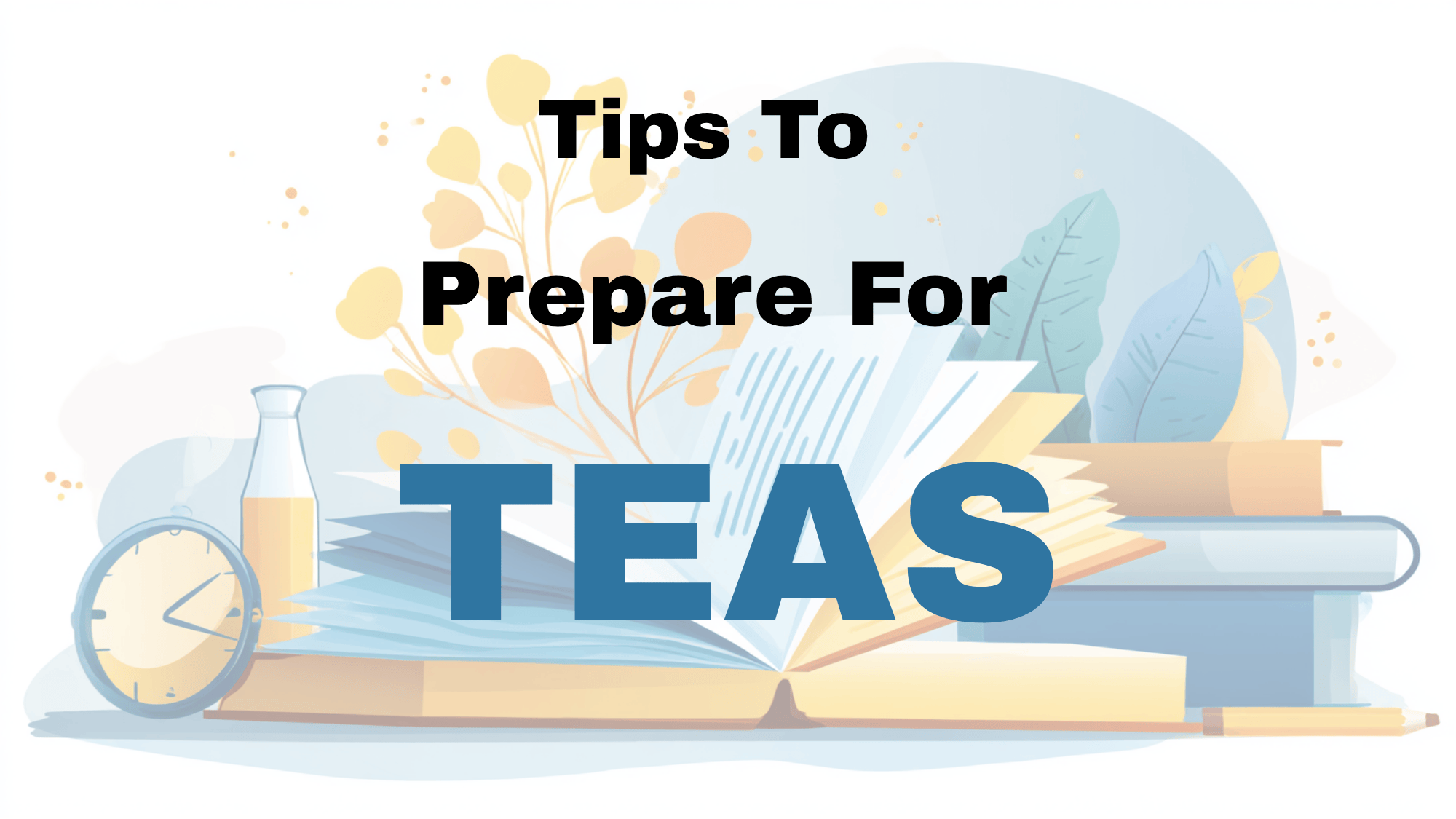Preparing for the TEAS exam? The English section of the exam focuses mainly on grammar, sentence structure, punctuation, and word usage skills you’ll use every day in nursing school.
Many test-takers search for free practice questions that match the real test format. This post includes a TEAS English practice test you can try now, plus tips to help you improve your score.
If you are struggling with formal tone, complex sentences, or comma rules, these examples are designed to boost your confidence and help you prepare smarter.
What does the TEAS English Section Cover?
The TEAS English section evaluates your understanding of essential language concepts needed for effective communication.
It tests knowledge in grammar, spelling, punctuation, and sentence structure, ensuring you can read, write, and edit clearly.
The section typically includes around 37 questions, and you have approximately 37 minutes to complete it.
This section accounts for roughly 12% to 14% of your total TEAS exam score, making it an important part of your overall performance.
Common challenges students face include mastering punctuation rules, sentence variety, and identifying grammatical errors under time pressure.
TEAS English & Language Usage Categories
- Grammar and usage
- Spelling
- Punctuation
- Sentence structure and formation
- Vocabulary and word meaning in context
- Subject-verb agreement
- Parts of speech
- Sentence types (simple, compound, complex)
- Word relationships and transitions
TEAS English Practice Test – Try These Questions
Here are some sample questions covering different categories of the TEAS English and Language Usage section. For more practice, a PDF with an additional 10 unique questions per category is also available.
Grammar and Usage
Let’s start with the basics of how words work together so your sentences sound natural and correct.
-
Which sentence uses correct subject-verb agreement?
(A) The group of students are meeting today.
(B) The group of students is meeting today.
(C) The groups of students is meeting today.
(D) The groups of students are meets today.
Answer: (B) The group of students is meeting today. -
Choose the sentence with the correct past tense verb:
(A) She has wrote the report yesterday.
(B) She has written the report yesterday.
(C) She wrote the report yesterday.
(D) She write the report yesterday.
Answer: (C) She wrote the report yesterday. -
Identify the sentence with a misplaced modifier:
(A) The dog barked loudly at the man running down the street.
(B) The dog running down the street barked loudly at the man.
(C) The man barking loudly ran down the street with the dog.
(D) The dog barked loudly while the man ran down the street.
Answer: (A) The dog barked loudly at the man running down the street. -
Which sentence is grammatically correct?
(A) Neither the teacher nor the students was ready.
(B) Neither the teacher nor the students were ready.
(C) Neither the teacher or the students were ready.
(D) Neither the teacher or the students was ready.
Answer: (B) Neither the teacher nor the students were ready. -
Choose the sentence with correct pronoun usage:
(A) Him and I went to the library.
(B) He and I went to the library.
(C) Me and him went to the library.
(D) I and he went to the library.
Answer: (B) He and I went to the library. -
Which is correct?
(A) Everyone should bring their own lunch.
(B) Everyone should bring his or her own lunch.
(C) Everyone should bring his own lunch.
(D) Everyone should bring theirselves lunch.
Answer: (B) Everyone should bring his or her own lunch. -
Identify the sentence with correct parallel structure:
(A) She likes reading, biking, and to swim.
(B) She likes reading, biking, and swimming.
(C) She likes to read, biking, and swim.
(D) She likes reading, biking, and to swim.
Answer: (B) She likes reading, biking, and swimming. -
Find the sentence with correct verb form:
(A) If I was rich, I would travel the world.
(B) If I were rich, I would travel the world.
(C) If I am rich, I would travel the world.
(D) If I were rich, I traveled the world.
Answer: (B) If I were rich, I would travel the world. -
Which sentence uses correct comparative adjectives?
(A) This test is more easier than the last one.
(B) This test is easier than the last one.
(C) This test is more easy than the last one.
(D) This test is easiest than the last one.
Answer: (B) This test is easier than the last one. -
Choose the sentence written in active voice:
(A) The book was read by the student.
(B) The student read the book.
(C) The book is being read by the student.
(D) The book had been read by the student.
Answer: (B) The student read the book.
Some other Questions:
Punctuation
Now that the grammar is in place, let’s fine-tune how your writing looks and flows with proper punctuation.
-
Choose the sentence with correct comma placement:
(A) My favorite fruits are apples, oranges, and bananas.
(B) My favorite fruits are apples oranges and bananas.
(C) My favorite fruits are, apples oranges and bananas.
(D) My favorite fruits, are apples oranges and bananas.
Answer: (A) My favorite fruits are apples, oranges, and bananas. - Where should the comma be placed?
Before or after the word “although” in this sentence:
I wanted to go to the park although it was raining.
Answer: Before “although”: I wanted to go to the park, although it was raining. -
Which sentence uses apostrophes correctly?
(A) The dogs bone was missing.
(B) The dog’s bone was missing.
(C) The dogs’ bone was missing.
(D) The dogs’s bone was missing.
Answer: (B) The dog’s bone was missing. -
Select the correctly punctuated sentence with a semicolon:
(A) It is raining today; however, the picnic is still on.
(B) It is raining today; however the picnic is still on.
(C) It is raining today however; the picnic is still on.
(D) It is raining today; however, the picnic, is still on.
Answer: (A) It is raining today; however, the picnic is still on. -
Identify the sentence using colons correctly:
(A) He bought: apples, oranges, and bananas.
(B) He bought apples, oranges, and bananas: for the party.
(C) He bought apples, oranges, and bananas for the party.
(D) He bought the following items: apples, oranges, and bananas.
Answer: (D) He bought the following items: apples, oranges, and bananas. -
Choose the sentence with correct quotation mark usage:
(A) She said, “I will be there soon.”
(B) She said, “I will be there soon.
(C) She said “I will be there soon.”
(D) ’She said, “I will be there soon.”
Answer: (A) She said, “I will be there soon.” -
Select the correct sentence:
(A) The winner is John, the fastest runner.
(B) The winner is John the fastest runner.
(C) The winner is John; the fastest runner.
(D) The winner is John: the fastest runner.
Answer: (A) The winner is John, the fastest runner. -
Identify the sentence with correct capitalization:
(A) I visited the Statue of liberty last summer.
(B) I visited the statue of Liberty last summer.
(C) I visited the Statue of Liberty last summer.
(D) I visited the statue Of liberty last summer.
Answer: (C) I visited the Statue of Liberty last summer. -
Where should a dash be placed correctly?
By using: “We left at 5 — so we arrived early.”
Answer: Correct as given: “We left at 5 — so we arrived early.” -
Which sentence correctly uses parentheses?
(A) The doctor (who is our neighbor) is very kind.
(B) The doctor who is (our neighbor) is very kind.
(C) The doctor who is our neighbor) is very kind.
(D) The doctor (who is our neighbor is very kind.
Answer: (A) The doctor (who is our neighbor) is very kind.
Some Other Questions:
Sentence Structure and Formation
With punctuation sorted, let’s build sentences that are strong, clear, and structurally sound.
1. Which of the following sentences is simple?
(A) After the meeting ended, we went to lunch.
(B) The sun rose.
(C) The dog barked and the cat hid.
(D) If it rains, we’ll cancel the picnic.
Answer: (B) The sun rose.
2. Which sentence is compound?
(A) He studied hard, so he passed the test.
(B) Since he studied hard, he passed the test.
(C) Studying hard, he passed the test.
(D) He studied hard passing the test.
Answer: (A) He studied hard, so he passed the test.
3. Which sentence contains a fragment?
(A) Because I said so.
(B) I don’t know why.
(C) She was happy.
(D) He smiled.
Answer: (A) Because I said so.
4. Identify the complex sentence.
(A) I bought apples, oranges, and bananas.
(B) She left because she felt sick.
(C) She left and he arrived.
(D) I saw the movie.
Answer: (B) She left because she felt sick.
5. Which is NOT a compound sentence?
(A) The test was hard, but I did well.
(B) I went home after school.
(C) I finished my project, and I turned it in.
(D) He wanted to run, yet he stayed.
Answer: (B) I went home after school.
6. Which sentence uses parallel structure correctly?
(A) We went hiking, swimming, and to fish.
(B) We went hiking, swimming, and fishing.
(C) We hiked, swim, and fishing.
(D) We going hiking and swimming.
Answer: (B) We went hiking, swimming, and fishing.
7. Which is a run-on sentence?
(A) She walked to the store she bought milk.
(B) She walked to the store and bought milk.
(C) After she walked to the store, she bought milk.
(D) She walked to the store. She bought milk.
Answer: (A) She walked to the store she bought milk.
8. Which sentence is correctly punctuated as a complex sentence?
(A) Because I was tired I went to bed early.
(B) Because I was tired, I went to bed early.
(C) Because, I was tired I went to bed early.
(D) I went to bed early, because I was tired.
Answer: (B) Because I was tired, I went to bed early.
9. Which is a compound-complex sentence?
(A) She smiled and waved.
(B) After she smiled, she waved and walked away.
(C) Although she smiled, she was tired, and she left early.
(D) She smiled, she waved.
Answer: (C) Although she smiled, she was tired, and she left early.
10. Which is a sentence fragment?
(A) I went to the store.
(B) While going to the store.
(C) I bought milk and bread.
(D) He left at noon.
Answer: (B) While going to the store.
Some Other Questions:
Sentence Structure and Formation
Subject-Verb Agreement
Now let’s zoom in on the harmony between subjects and verbs for accuracy and clarity.
1. Which is correct?
(A) The team are playing at home.
(B) The team is playing at home.
(C) The team been playing at home.
(D) The team was play at home.
Answer: (B) The team is playing at home.
2. Neither the children nor the teacher ____ present.
(A) are
(B) is
(C) were
(D) be
Answer: (B) is
3. One of the cakes ____ missing.
(A) are
(B) is
(C) be
(D) were
Answer: (B) is
4. The books on the shelf ____ dusty.
(A) is
(B) was
(C) are
(D) been
Answer: (C) are
5. The cat, along with the kittens, ____ sleeping.
(A) are
(B) is
(C) has
(D) were
Answer: (B) is
6. Every student and teacher ____ required to attend.
(A) are
(B) is
(C) were
(D) be
Answer: (B) is
7. The bouquet of roses ____ beautiful.
(A) were
(B) is
(C) are
(D) have
Answer: (B) is
8. Neither of the options ____ appealing.
(A) is
(B) are
(C) were
(D) be
Answer: (A) is
9. The dogs or the cat ____ making noise.
(A) is
(B) are
(C) was
(D) be
Answer: (A) is
10. There ____ only one answer.
(A) is
(B) are
(C) were
(D) have
Answer: (A) is
Some Other Questions:
Vocabulary and Word Meaning in Context
Finally, let’s make sure your word choices convey exactly the meaning you intend.
1. Which word means “abundant”?
(A) Scarce
(B) Plentiful
(C) Tiny
(D) Meager
Answer: (B) Plentiful
2. To “compile” information means to:
(A) Mix things up
(B) Destroy
(C) Gather together
(D) Forget
Answer: (C) Gather together
3. If a result is “imminent,” it is:
(A) Far away
(B) Inevitable
(C) Close at hand
(D) Unlikely
Answer: (C) Close at hand
4. “Revoke” most nearly means:
(A) Cancel
(B) Approve
(C) Begin
(D) Fix
Answer: (A) Cancel
5. “Meticulous” means:
(A) Careless
(B) Very careful
(C) Quick
(D) Uninterested
Answer: (B) Very careful
6. If an argument is “coherent,” it is:
(A) Confusing
(B) Easy to follow
(C) Rude
(D) Tangled
Answer: (B) Easy to follow
7. “Resilient” refers to someone who is:
(A) Easily discouraged
(B) Easily broken
(C) Bounces back easily
(D) Harsh
Answer: (C) Bounces back easily
8. “Ambiguous” most nearly means:
(A) Clear
(B) Unclear
(C) Large
(D) Angry
Answer: (B) Unclear
9. “Frugal” means:
(A) Reckless
(B) Generous
(C) Careful with money
(D) Loud
Answer: (C) Careful with money
10. “Mitigate” is closest in meaning to:
(A) Worsen
(B) Soften
(C) Anger
(D) Divide
Answer: (B) Soften
Some Other Questions:
Vocabulary and Word Meaning in Context
Final Tips for TEAS English Prep

These are some important tips to perform well and prepare yourself before the main exam.
- Review high school grammar basics: Brush up on punctuation rules, subject-verb agreement, sentence structure, and proper capitalization.
- Time yourself with short practice quizzes: Take 10–15 minute timed quizzes to get comfortable with the pace of the real test. This helps reduce stress and boosts accuracy.
- Use official study guides + apps: The ATI TEAS study guide and official apps include practice questions that mirror the real exam format.
- Focus on weak areas: Transitions, punctuation, tone. These are tricky for many students. Practice identifying formal vs. informal tone and knowing where to use commas and conjunctions.
Conclusion
Getting a strong score on the TEAS English section takes more than just memorizing terms; it’s about understanding how to use language clearly and correctly.
Use this guide to practice real question types and sharpen your grammar and reading skills.
Even short, daily review sessions can make a big difference.
Stay focused, work through your weak spots, and approach the test with confidence. You’re preparing with purpose, and it shows!












